26 June 2025
 This blog explores the importance of emotional regulation in supporting teenagers through the complex changes of adolescence, including brain development, identity formation, and social pressures. As the teenage brain undergoes neural pruning and the prefrontal cortex matures, teens become more sensitive to peer influence and prone to risky behavior. While parental influence decreases during this stage, parents still play a vital role in modeling emotional regulation, especially during emotional outbursts. The home should be a safe space for teens to express emotions in healthy ways, using strategies such as art, music, sport, deep breathing, or humming to manage stress. Ultimately, helping teens identify and process emotions equips them with lifelong tools for mental wellbeing This blog explores the importance of emotional regulation in supporting teenagers through the complex changes of adolescence, including brain development, identity formation, and social pressures. As the teenage brain undergoes neural pruning and the prefrontal cortex matures, teens become more sensitive to peer influence and prone to risky behavior. While parental influence decreases during this stage, parents still play a vital role in modeling emotional regulation, especially during emotional outbursts. The home should be a safe space for teens to express emotions in healthy ways, using strategies such as art, music, sport, deep breathing, or humming to manage stress. Ultimately, helping teens identify and process emotions equips them with lifelong tools for mental wellbeing |
| |
17 June 2025
 This explores a groundbreaking scientific study led by researchers in Ohio, particularly at Cincinnati Children's Hospital, examining how screen time impacts children’s brain development. The research follows hundreds of children from birth, using MRI scans to track brain changes over time. One example is a five-year-old named Rose, who participates in the study by undergoing brain imaging while watching movies to keep her still. These scans are compared with images taken when she was a newborn, helping scientists observe how exposure to screens and other environmental factors affect areas of the brain linked to reading, decision-making, and language development. This explores a groundbreaking scientific study led by researchers in Ohio, particularly at Cincinnati Children's Hospital, examining how screen time impacts children’s brain development. The research follows hundreds of children from birth, using MRI scans to track brain changes over time. One example is a five-year-old named Rose, who participates in the study by undergoing brain imaging while watching movies to keep her still. These scans are compared with images taken when she was a newborn, helping scientists observe how exposure to screens and other environmental factors affect areas of the brain linked to reading, decision-making, and language development. |
| |
21 May 2025
 Many seek to change the world in big ways, but as Mother Teresa reminds us, it begins with small acts of love at home—caring for our families through presence, sacrifice, and humility. True love is found not in grand gestures, but in the everyday choices to serve, whether it’s changing nappies, listening to teenagers, or supporting aging parents. In each season of life, we are invited to grow in love—fathers and mothers, uncles and aunties, mentors and friends—all are called to show up with grace, especially when it's hard. Love stretches us beyond comfort, invites us into deeper relationship, and ultimately reflects God's compassion. Whether caring for a child or holding the hand of an elderly parent, our most powerful witness is our presence, reminding us that the world changes one small act of love at a time. Many seek to change the world in big ways, but as Mother Teresa reminds us, it begins with small acts of love at home—caring for our families through presence, sacrifice, and humility. True love is found not in grand gestures, but in the everyday choices to serve, whether it’s changing nappies, listening to teenagers, or supporting aging parents. In each season of life, we are invited to grow in love—fathers and mothers, uncles and aunties, mentors and friends—all are called to show up with grace, especially when it's hard. Love stretches us beyond comfort, invites us into deeper relationship, and ultimately reflects God's compassion. Whether caring for a child or holding the hand of an elderly parent, our most powerful witness is our presence, reminding us that the world changes one small act of love at a time. |
| |
18 May 2025
 Dr. Daniel Amen emphasizes that raising mentally strong children begins with prioritizing brain health, which he considers foundational to emotional well-being, decision-making, and relationships. By examining over 250,000 brain scans across 155 countries, Dr. Amen has observed that many psychiatric issues stem not from “mental illness” per se, but from underlying brain dysfunction. He argues that when the brain is healthy, people function better mentally, emotionally, and socially. This insight reframes behavioral challenges in children—from impulsivity to aggression—not as character flaws or bad parenting, but as symptoms of a brain that needs healing and support. Dr. Daniel Amen emphasizes that raising mentally strong children begins with prioritizing brain health, which he considers foundational to emotional well-being, decision-making, and relationships. By examining over 250,000 brain scans across 155 countries, Dr. Amen has observed that many psychiatric issues stem not from “mental illness” per se, but from underlying brain dysfunction. He argues that when the brain is healthy, people function better mentally, emotionally, and socially. This insight reframes behavioral challenges in children—from impulsivity to aggression—not as character flaws or bad parenting, but as symptoms of a brain that needs healing and support. |
| |
19 January 2025
 The presentation starts by illustrating how the mind is a natural storyteller, making connections and creating narratives to understand the world. This is demonstrated through a quirky exercise where the audience is asked to consider how a desk could be the mother of a chair, highlighting the mind's tendency to form stories even in the absence of logical connections. The presentation starts by illustrating how the mind is a natural storyteller, making connections and creating narratives to understand the world. This is demonstrated through a quirky exercise where the audience is asked to consider how a desk could be the mother of a chair, highlighting the mind's tendency to form stories even in the absence of logical connections. |
| |
31 December 2024
 Sometimes I find I can be quite grumpy when I come home with my kids. When my daughter has been using her phone for 1 hour, I can snap at her or when my 8 year old son says “can we play handball?†I can respond with “I am too busyâ€. Sometimes I find I can be quite grumpy when I come home with my kids. When my daughter has been using her phone for 1 hour, I can snap at her or when my 8 year old son says “can we play handball?†I can respond with “I am too busyâ€. |
| |
08 November 2024
 The presentation 'Emotional Coaching for Teens and Young Adults' offers a structured approach for parents to guide their children through emotional challenges, emphasizing connection, empathy, and resilience. Using relatable stories, it outlines five key steps: noticing emotions, clarifying with questions, acknowledging and validating feelings, reflecting and labeling emotions, and providing follow-up support. Grounded in research by experts like Dr. John Gottman and Dr. Jessica Borelli, the guide stresses the importance of fostering autonomy and emotional intelligence over offering immediate solutions. The presentation concludes with a prayer, seeking divine guidance for parents in this journey. The presentation 'Emotional Coaching for Teens and Young Adults' offers a structured approach for parents to guide their children through emotional challenges, emphasizing connection, empathy, and resilience. Using relatable stories, it outlines five key steps: noticing emotions, clarifying with questions, acknowledging and validating feelings, reflecting and labeling emotions, and providing follow-up support. Grounded in research by experts like Dr. John Gottman and Dr. Jessica Borelli, the guide stresses the importance of fostering autonomy and emotional intelligence over offering immediate solutions. The presentation concludes with a prayer, seeking divine guidance for parents in this journey. |
| |
04 November 2024
 The Tuning into Teens parenting course provides valuable insights for parents navigating the shift from guiding young children to supporting teenagers. As children grow, they often 'fire' parents from a managerial role, preferring them as 'consultants' who advise but allow independence. The course explores various parenting styles—Dismissing, Disapproving, Laissez-Faire, and Emotion Coaching—and their effects on children's emotional growth. Emotion Coaching, the preferred style, encourages empathy, validation, and constructive guidance. By focusing on awareness, connection, active listening, and fostering interdependence, parents can build strong, trusting relationships and equip teens with emotional resilience and confidence. Although parents may not always use Emotion Coaching, dedicating even 30-40% of interactions to this approach can positively impact a child's development and well-being. The Tuning into Teens parenting course provides valuable insights for parents navigating the shift from guiding young children to supporting teenagers. As children grow, they often 'fire' parents from a managerial role, preferring them as 'consultants' who advise but allow independence. The course explores various parenting styles—Dismissing, Disapproving, Laissez-Faire, and Emotion Coaching—and their effects on children's emotional growth. Emotion Coaching, the preferred style, encourages empathy, validation, and constructive guidance. By focusing on awareness, connection, active listening, and fostering interdependence, parents can build strong, trusting relationships and equip teens with emotional resilience and confidence. Although parents may not always use Emotion Coaching, dedicating even 30-40% of interactions to this approach can positively impact a child's development and well-being. |
| |
22 October 2024
 Yuko Munakata offers an alternative, research-backed reality that highlights how it's just one of many factors that influence the chaotic complexity of childhood development. A rethink for anyone wondering what made them who they are today and what it means to be a good parent. Yuko Munakata offers an alternative, research-backed reality that highlights how it's just one of many factors that influence the chaotic complexity of childhood development. A rethink for anyone wondering what made them who they are today and what it means to be a good parent. |
| |
18 August 2024
 Julie and John Gottman, founders of the Gottman Institute, have spent their careers studying relationships, discovering that how couples fight, rather than whether they fight, determines long-term success. Their research shows that maintaining a positive-to-negative interaction ratio and focusing on understanding rather than winning during conflicts can strengthen relationships. They identified key negative behaviors, like criticism and stonewalling, that harm relationships, but also found that most conflicts are perpetual and must be managed rather than resolved. By using tools like the 'dreams within conflict' conversation, couples can deepen their understanding of each other, leading to more resilient relationships and contributing to a more peaceful society. Julie and John Gottman, founders of the Gottman Institute, have spent their careers studying relationships, discovering that how couples fight, rather than whether they fight, determines long-term success. Their research shows that maintaining a positive-to-negative interaction ratio and focusing on understanding rather than winning during conflicts can strengthen relationships. They identified key negative behaviors, like criticism and stonewalling, that harm relationships, but also found that most conflicts are perpetual and must be managed rather than resolved. By using tools like the 'dreams within conflict' conversation, couples can deepen their understanding of each other, leading to more resilient relationships and contributing to a more peaceful society. |
| |
02 August 2024
 Prayer is essential to family life, serving as the lifeblood of our spiritual journey and connecting us to the infinite in the midst of our finite existence. Just as parents guide their children in learning to walk and discern right from wrong, they must also model and teach the importance of prayer. Through simple practices—such as praying together at meals, reflecting on Scripture, or finding God in everyday moments—families can deepen their connection with God and each other. By fostering a prayerful environment, parents help their children grow in faith, ensuring that the spiritual dimension of life is nurtured and embraced. Prayer is essential to family life, serving as the lifeblood of our spiritual journey and connecting us to the infinite in the midst of our finite existence. Just as parents guide their children in learning to walk and discern right from wrong, they must also model and teach the importance of prayer. Through simple practices—such as praying together at meals, reflecting on Scripture, or finding God in everyday moments—families can deepen their connection with God and each other. By fostering a prayerful environment, parents help their children grow in faith, ensuring that the spiritual dimension of life is nurtured and embraced. |
| |
06 July 2024
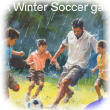 On Friday night, I took my youngest son to soccer training. It was the middle of winter, and it had been raining throughout the day. Despite the cold and wet conditions, the coach wanted to proceed with the training. It would have been much easier to stay at home, rugged up in front of the TV. Some parents messaged, saying they would not be coming. The game scheduled for the next day, Saturday, had been cancelled, which only fueled the desire to skip training. On Friday night, I took my youngest son to soccer training. It was the middle of winter, and it had been raining throughout the day. Despite the cold and wet conditions, the coach wanted to proceed with the training. It would have been much easier to stay at home, rugged up in front of the TV. Some parents messaged, saying they would not be coming. The game scheduled for the next day, Saturday, had been cancelled, which only fueled the desire to skip training. |
| |
23 May 2024
 In 'How do Christians and Catholics Approach Teaching Human Sexuality to Teenagers?' by Andrew Dumas, the author reflects on a lecture about the ethics of sex and sexuality and its reception at his family dinner table, leading to broader considerations on the topic within Christian contexts. Dumas critiques the direct instructional approach, advocating instead for a method rooted in ontological questioning and the deep exploration of love and personal relationships, as modeled by Jesus. He argues that understanding human sexuality in Christian teaching should transcend mere ethical dos and don'ts to foster a foundational love and faith that resonate with God's teachings. This approach, he believes, not only helps in discussing sensitive subjects like sexuality but also aligns with the profound Christian principle of love as the essence of existence and moral guidance. In 'How do Christians and Catholics Approach Teaching Human Sexuality to Teenagers?' by Andrew Dumas, the author reflects on a lecture about the ethics of sex and sexuality and its reception at his family dinner table, leading to broader considerations on the topic within Christian contexts. Dumas critiques the direct instructional approach, advocating instead for a method rooted in ontological questioning and the deep exploration of love and personal relationships, as modeled by Jesus. He argues that understanding human sexuality in Christian teaching should transcend mere ethical dos and don'ts to foster a foundational love and faith that resonate with God's teachings. This approach, he believes, not only helps in discussing sensitive subjects like sexuality but also aligns with the profound Christian principle of love as the essence of existence and moral guidance. |
| |
21 April 2024
 The YouTube clip titled 'Foundation to Raising Mentally Strong Kids' discusses the importance of brain health as the basis for mental strength, emphasizing that many mental health issues are fundamentally brain health issues. It highlights the use of brain imaging studies at the Amen Clinics, which reveal insights from over 250,000 scans, to treat children and adolescents. The clip underscores that psychiatric conditions often stem from the brain's health rather than purely psychological origins. The YouTube clip titled 'Foundation to Raising Mentally Strong Kids' discusses the importance of brain health as the basis for mental strength, emphasizing that many mental health issues are fundamentally brain health issues. It highlights the use of brain imaging studies at the Amen Clinics, which reveal insights from over 250,000 scans, to treat children and adolescents. The clip underscores that psychiatric conditions often stem from the brain's health rather than purely psychological origins. |
| |
17 March 2024
 In the podcast 'The Best Thing for Your Marriage' by Francis and Lisa Chan, part of the Crazy Love series, the Chans discuss the importance of setting one's sights on heavenly rather than earthly treasures to foster a godly marriage. They emphasize the need for husbands to lead their families towards spiritual values and for both partners to remember their purpose and identity in Christ. The core message is that marriage is not about individual desires or gains but about serving Christ and embodying the virtues of compassion, kindness, humility, gentleness, patience, and forgiveness, as outlined in Colossians 3. In the podcast 'The Best Thing for Your Marriage' by Francis and Lisa Chan, part of the Crazy Love series, the Chans discuss the importance of setting one's sights on heavenly rather than earthly treasures to foster a godly marriage. They emphasize the need for husbands to lead their families towards spiritual values and for both partners to remember their purpose and identity in Christ. The core message is that marriage is not about individual desires or gains but about serving Christ and embodying the virtues of compassion, kindness, humility, gentleness, patience, and forgiveness, as outlined in Colossians 3. |
| |
07 March 2024
 ABC News reported on a study examining the impact of screen time on toddler's speech and language development. Conducted over 2.5 years with 220 Australian households, the research, led by Dr. Mary Bru from the Ton Kids Institute, involved attaching a Fitbit-like device to toddlers and recording 16 hours of audio daily. The findings revealed that the average 3-year-old might miss out on hearing up to 1,100 words, making 840 vocalizations, and participating in nearly two conversations each day due to screen time. This phenomenon, referred to as 'technoference,' suggests that screens are limiting the amount of language, conversation, and connection children experience, which is crucial for early language development. Speech pathologist Katherine McKinley highlighted that approximately 23% of children are behind in language and literacy development by school age. However, the study also suggests that eliminating screen time is not necessary; rather, the focus should be on moderation and selecting educational content to support children's development. ABC News reported on a study examining the impact of screen time on toddler's speech and language development. Conducted over 2.5 years with 220 Australian households, the research, led by Dr. Mary Bru from the Ton Kids Institute, involved attaching a Fitbit-like device to toddlers and recording 16 hours of audio daily. The findings revealed that the average 3-year-old might miss out on hearing up to 1,100 words, making 840 vocalizations, and participating in nearly two conversations each day due to screen time. This phenomenon, referred to as 'technoference,' suggests that screens are limiting the amount of language, conversation, and connection children experience, which is crucial for early language development. Speech pathologist Katherine McKinley highlighted that approximately 23% of children are behind in language and literacy development by school age. However, the study also suggests that eliminating screen time is not necessary; rather, the focus should be on moderation and selecting educational content to support children's development. |
| |
01 March 2024
 A teen’s opinion on parenting from stereotypes and experience. This talk teaches parents about technology, teen emotions, and types of parents, all from a teen’s perspective. Lucy Androski is 13 years old and just completed her 7th-grade year at Okoboji Middle School. As Lucy is our youngest speaker, she has a unique view on parenting teens. She enjoys music, art, and playing tennis. This talk was given at a TEDx event using the TED conference format but independently organized by a local community. A teen’s opinion on parenting from stereotypes and experience. This talk teaches parents about technology, teen emotions, and types of parents, all from a teen’s perspective. Lucy Androski is 13 years old and just completed her 7th-grade year at Okoboji Middle School. As Lucy is our youngest speaker, she has a unique view on parenting teens. She enjoys music, art, and playing tennis. This talk was given at a TEDx event using the TED conference format but independently organized by a local community. |
| |
13 February 2024
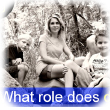 This blog explores the crucial role dads play in their children's development by actively engaging in their lives, serving as role models, and guiding them through life's important questions and challenges. This blog explores the crucial role dads play in their children's development by actively engaging in their lives, serving as role models, and guiding them through life's important questions and challenges. |
| |
28 January 2024
 Dr. Gabor Maté's lecture 'The Myth of Normal & The Power of Connection' delves into the complex interplay between individual health and societal factors. It underscores the importance of understanding human behavior from a holistic perspective, considering the crucial role of childhood development, societal stress, and emotional connections in shaping mental and physical well-being. The lecture challenges traditional medical dichotomies between mind and body, advocating for a more integrated approach that acknowledges the impact of cultural, racial, and environmental factors. Emphasizing the importance of attachment and connection, it also explores how personal and historical trajectories influence health, advocating for a transformation in health perspectives to include spiritual and ecological dimensions. Dr. Gabor Maté's lecture 'The Myth of Normal & The Power of Connection' delves into the complex interplay between individual health and societal factors. It underscores the importance of understanding human behavior from a holistic perspective, considering the crucial role of childhood development, societal stress, and emotional connections in shaping mental and physical well-being. The lecture challenges traditional medical dichotomies between mind and body, advocating for a more integrated approach that acknowledges the impact of cultural, racial, and environmental factors. Emphasizing the importance of attachment and connection, it also explores how personal and historical trajectories influence health, advocating for a transformation in health perspectives to include spiritual and ecological dimensions. |
| |
16 January 2024
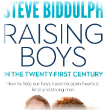 Few books have stayed in the hearts and minds of parents everywhere as much as Raising Boys. Now in an increasingly complicated and nuanced world, raising boys to become emotionally strong, kind and resilient men is even more important and relevant. In response to calls from parents around the world Steve Biddulph has completely updated and revised his seminal work to include all the latest international information and advice for parents on all the key issues of today. Few books have stayed in the hearts and minds of parents everywhere as much as Raising Boys. Now in an increasingly complicated and nuanced world, raising boys to become emotionally strong, kind and resilient men is even more important and relevant. In response to calls from parents around the world Steve Biddulph has completely updated and revised his seminal work to include all the latest international information and advice for parents on all the key issues of today. |
| |
02 January 2024
 The blog post discusses the transition from structured education to the broader, self-directed learning that life offers beyond formal schooling, suggesting it truly begins at the age of 19. It reflects on the tendency to move away from faith and community during this period, questioning whether life's purpose extends beyond personal achievements and material success. The narrative draws parallels with Mary's unquestioning faith and the concept of divine design, underscoring the value of confronting fears and actively engaging with life's challenges. The author illustrates these ideas with a personal anecdote about mediating a conflict between their children, using it as a metaphor for divine intervention. The post concludes by encouraging a proactive approach to life's journey, inspired by biblical teachings that advocate for trust and courage in the face of fear. The blog post discusses the transition from structured education to the broader, self-directed learning that life offers beyond formal schooling, suggesting it truly begins at the age of 19. It reflects on the tendency to move away from faith and community during this period, questioning whether life's purpose extends beyond personal achievements and material success. The narrative draws parallels with Mary's unquestioning faith and the concept of divine design, underscoring the value of confronting fears and actively engaging with life's challenges. The author illustrates these ideas with a personal anecdote about mediating a conflict between their children, using it as a metaphor for divine intervention. The post concludes by encouraging a proactive approach to life's journey, inspired by biblical teachings that advocate for trust and courage in the face of fear. |
| |
25 November 2023
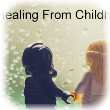 The YouTube video titled 'Oprah Winfrey & Dr. Perry ON: Healing From Childhood Trauma & Becoming Self Aware, Confident Adults' is a discussion hosted by Jay Shetty, featuring Oprah Winfrey and Dr. Bruce Perry. The conversation focuses on their book, 'What Happened to You?' and covers various topics related to childhood trauma, healing, and personal growth. The YouTube video titled 'Oprah Winfrey & Dr. Perry ON: Healing From Childhood Trauma & Becoming Self Aware, Confident Adults' is a discussion hosted by Jay Shetty, featuring Oprah Winfrey and Dr. Bruce Perry. The conversation focuses on their book, 'What Happened to You?' and covers various topics related to childhood trauma, healing, and personal growth. |
| |
21 November 2023
 Maintaining a clean and orderly home is a Herculean task, especially when children are in the mix. Their innate ability to accumulate and scatter possessions is matched only by our own adult tendencies to add to the domestic chaos. This realization often comes into sharp focus when we step into the pristine environment of someone else’s abode, prompting an introspective look at our living spaces. Maintaining a clean and orderly home is a Herculean task, especially when children are in the mix. Their innate ability to accumulate and scatter possessions is matched only by our own adult tendencies to add to the domestic chaos. This realization often comes into sharp focus when we step into the pristine environment of someone else’s abode, prompting an introspective look at our living spaces. |
| |
05 November 2023
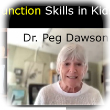 Dr. Dawson emphasizes looking at both strengths and weaknesses when assessing executive skills. Celebrating strengths can empower children to tackle challenges, such as a child with dyslexia harnessing goal-directed persistence to overcome reading difficulties. Dr. Dawson emphasizes looking at both strengths and weaknesses when assessing executive skills. Celebrating strengths can empower children to tackle challenges, such as a child with dyslexia harnessing goal-directed persistence to overcome reading difficulties. |
| |
29 October 2023
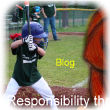 My children attended a public primary school, where, as you entered the grounds, amidst the vast stretches of verdant ovals, four flags stood tall and proud. Each bore a word, representing the core values of the school. The word 'responsibility' prominently stood out among them. As a parent, and more so as a father, this word resonates deeply with me. Responsibility is, after all, our mantle to bear. If we, as guardians, falter in our responsibilities, how can we expect children to uphold the same values? My children attended a public primary school, where, as you entered the grounds, amidst the vast stretches of verdant ovals, four flags stood tall and proud. Each bore a word, representing the core values of the school. The word 'responsibility' prominently stood out among them. As a parent, and more so as a father, this word resonates deeply with me. Responsibility is, after all, our mantle to bear. If we, as guardians, falter in our responsibilities, how can we expect children to uphold the same values? |
| |
04 June 2023
 Tim and Kathy Keller discuss the distorted and unreal relationship our culture has with marriage. They break down their talk into three parts. Firstly, they present statistics that reveal the changing landscape of marriage, such as the rising divorce rate and the decrease in the percentage of married adults. They also highlight the increasing prevalence of cohabitation. These statistics reflect underlying assumptions, such as the belief that most marriages are unhappy and the importance of finding a perfectly compatible soul mate. Tim and Kathy Keller discuss the distorted and unreal relationship our culture has with marriage. They break down their talk into three parts. Firstly, they present statistics that reveal the changing landscape of marriage, such as the rising divorce rate and the decrease in the percentage of married adults. They also highlight the increasing prevalence of cohabitation. These statistics reflect underlying assumptions, such as the belief that most marriages are unhappy and the importance of finding a perfectly compatible soul mate. |
| |
03 June 2023
 This video discusses the four traditional styles of parenting: authoritarian, permissive, authoritative, and neglectful. Each style is characterized by different approaches to control, warmth, and responsiveness. The effects of these parenting styles on children's development are explored through the lives of four fictional children. This video discusses the four traditional styles of parenting: authoritarian, permissive, authoritative, and neglectful. Each style is characterized by different approaches to control, warmth, and responsiveness. The effects of these parenting styles on children's development are explored through the lives of four fictional children. |
| |
05 February 2023
 Yesterday was the first day back for one of my sons to school. He did not want to get out of bed at 7.15 am to prepare for school. Part of me wanted to get angry with for not doing what I wanted and thus force him to get moving. Part of me thought “this is not the best way to start the year with angerâ€. Next to his bed where he still lay I started doing a whole series of sit ups, push ups and leg crunches. Hoping that this energy would motivate him to start moving. This did not work. As he is smaller than I, I grabbed him like a puppet and walked him to in front of the mirror of the bathroom. I started to sing a song which I made up on the spot “Let’s get going and start the day. It’s time to go to school and start the dayâ€. At the same time, I started dancing with him. Moving his arms up and down and outwards. Despite him feeling tired and not wanting to move. It was a silly song, but soon the negative emotions started to melt away. Humour. Suddenly giggles and laughter appeared. Within about 3 to 4 minutes of singing and dancing my son was ready to get ready for school. There was something about the human contact and humour I had with him which changed everything. Yesterday was the first day back for one of my sons to school. He did not want to get out of bed at 7.15 am to prepare for school. Part of me wanted to get angry with for not doing what I wanted and thus force him to get moving. Part of me thought “this is not the best way to start the year with angerâ€. Next to his bed where he still lay I started doing a whole series of sit ups, push ups and leg crunches. Hoping that this energy would motivate him to start moving. This did not work. As he is smaller than I, I grabbed him like a puppet and walked him to in front of the mirror of the bathroom. I started to sing a song which I made up on the spot “Let’s get going and start the day. It’s time to go to school and start the dayâ€. At the same time, I started dancing with him. Moving his arms up and down and outwards. Despite him feeling tired and not wanting to move. It was a silly song, but soon the negative emotions started to melt away. Humour. Suddenly giggles and laughter appeared. Within about 3 to 4 minutes of singing and dancing my son was ready to get ready for school. There was something about the human contact and humour I had with him which changed everything. |
| |
22 January 2023
 The year is 1984. My 4 brothers and sisters and I pile into mum and dads 929 station wagon. We are going to church at 9 am. We are 6,7,8 years of age. We sit in the first row at church like good abiding Catholics. My brother and I start poking each other. We start whispering into each other’s ears. The giggles start. We are bored. Then all of a sudden dad leans over and says, “if you boys don’t stop it, you are going to get it when you get homeâ€. The antics continue. Dad seems to be very unhappy. The year is 1984. My 4 brothers and sisters and I pile into mum and dads 929 station wagon. We are going to church at 9 am. We are 6,7,8 years of age. We sit in the first row at church like good abiding Catholics. My brother and I start poking each other. We start whispering into each other’s ears. The giggles start. We are bored. Then all of a sudden dad leans over and says, “if you boys don’t stop it, you are going to get it when you get homeâ€. The antics continue. Dad seems to be very unhappy. |
| |
21 January 2023
 In 2020 it was a difficult year for many people. Shaking hands, a peck on the cheek suddenly became weird. For tactile people this would have been really difficult. Many teens are very tactile. You walk into a school playground in a high school you see girls hugging and guys fist pumping. Lots of physicality but then they were told, sorry no, 1.5 metres apart. You cannot even sit near each other in school assemblies. In 2020 it was a difficult year for many people. Shaking hands, a peck on the cheek suddenly became weird. For tactile people this would have been really difficult. Many teens are very tactile. You walk into a school playground in a high school you see girls hugging and guys fist pumping. Lots of physicality but then they were told, sorry no, 1.5 metres apart. You cannot even sit near each other in school assemblies. |
| |
24 December 2022
 Sibling rivalry is normal. When we are stuck at home with lock down. Is there a Silver bullet? No. Children often do not have the language skills or emotional intelligence to deal with this. How can we deal with children fighting? What are the top tips to deal with children fighting? Sibling rivalry is normal. When we are stuck at home with lock down. Is there a Silver bullet? No. Children often do not have the language skills or emotional intelligence to deal with this. How can we deal with children fighting? What are the top tips to deal with children fighting? |
| |
25 November 2022
 Being a parent is a very difficult job. When our children at different ages place demands on us. When they are born there is a continuous stream of nappies. When they are 2 they wake up at 2 am throwing up. As young children at 5 they want our attention. Mummy! Daddy! As teenagers they want to rebel. As young adults they confuse us and maybe do things we would not do ourselves. Then parents have outwards pressures like keeping a job to pay the bills. Like cleaning and tidying the house. Like mowing the lawn or tending the garden. Finally, parents have relational issues. Will the relationship stay together? As both spouses grow, they change both mentally, physically, emotionally, and spiritually. Do our spouses grow with us? Do they accept our changes? Do they want to spend quality time that nurture an already stretched relationship? Being a parent is a very difficult job. When our children at different ages place demands on us. When they are born there is a continuous stream of nappies. When they are 2 they wake up at 2 am throwing up. As young children at 5 they want our attention. Mummy! Daddy! As teenagers they want to rebel. As young adults they confuse us and maybe do things we would not do ourselves. Then parents have outwards pressures like keeping a job to pay the bills. Like cleaning and tidying the house. Like mowing the lawn or tending the garden. Finally, parents have relational issues. Will the relationship stay together? As both spouses grow, they change both mentally, physically, emotionally, and spiritually. Do our spouses grow with us? Do they accept our changes? Do they want to spend quality time that nurture an already stretched relationship? |
| |
22 November 2022
 Every single one of us knows something about family. Every single one of us is someone's child. Therefore has experienced parenting. Some of us are parents have have our own children. I have four. As human beings we all familiar with expectations. Expectations laid on us to succeed in life. Expectations at work to deliver. To be affective. To know not to fail. Expectations for parents to juggle personal and professional lives. Eat healthy food. Prepare our children healthy meals every day. Every single one of us knows something about family. Every single one of us is someone's child. Therefore has experienced parenting. Some of us are parents have have our own children. I have four. As human beings we all familiar with expectations. Expectations laid on us to succeed in life. Expectations at work to deliver. To be affective. To know not to fail. Expectations for parents to juggle personal and professional lives. Eat healthy food. Prepare our children healthy meals every day. |
| |
08 November 2022
 As kids grow into being teenagers the needs of kids change. Often growing up, dads seem to work a lot more, spending less quality time with their children. This is due to work demands but also cultural norms which often see mum playing an increasing parenting role. But teenagers need dad’s presence just as much as they do mum. As kids grow into being teenagers the needs of kids change. Often growing up, dads seem to work a lot more, spending less quality time with their children. This is due to work demands but also cultural norms which often see mum playing an increasing parenting role. But teenagers need dad’s presence just as much as they do mum. |
| |
29 October 2022
 Just for a moment I want you to imagine that you are 4 years old. You are on the ground building a tower. In the next minute a kid comes running along and kicks over your tower and you are outranged. You feel these feelings bubbling inside of you of hurt, panic and frustration and helplessness. Just in that moment an adult comes in. Gets up close and says “Honey. What happened?†You see in their eyes there is compassion. You feel that their body is calm and regularity. All those feelings come bubbling out. Frustration. The anger. The helplessness. This out goes “oww…yeah….tell me all about itâ€. They do not fix it. They do not say to you “don’t worry you can build another oneâ€. They just let you feel all that you are feeling. They open their arms. You snuggle in. And you feel better….then you can get back to building your tower. Just for a moment I want you to imagine that you are 4 years old. You are on the ground building a tower. In the next minute a kid comes running along and kicks over your tower and you are outranged. You feel these feelings bubbling inside of you of hurt, panic and frustration and helplessness. Just in that moment an adult comes in. Gets up close and says “Honey. What happened?†You see in their eyes there is compassion. You feel that their body is calm and regularity. All those feelings come bubbling out. Frustration. The anger. The helplessness. This out goes “oww…yeah….tell me all about itâ€. They do not fix it. They do not say to you “don’t worry you can build another oneâ€. They just let you feel all that you are feeling. They open their arms. You snuggle in. And you feel better….then you can get back to building your tower. |
| |
23 October 2022
 When my dad got his license back in the 1930s the police officer asked him to drive around the block which took less than 5 minutes and he got his driver’s licence. There were real problems with car accidents, so as the decades rolled by the hurdles to get a car license in Australia got much harder. This was in the view to protect and keep safe people. When my dad got his license back in the 1930s the police officer asked him to drive around the block which took less than 5 minutes and he got his driver’s licence. There were real problems with car accidents, so as the decades rolled by the hurdles to get a car license in Australia got much harder. This was in the view to protect and keep safe people. |
| |
10 October 2022
 Around the age of 12 our children start thinking for themselves saying things like “I don’t want to go to churchâ€, and “Why do we have to go to church?†When around 1910, Pope Pius 10 did not do us a favour by making weekly church attendance compulsory. Children and adults need to form a love for God and a desire to engage with God’s community freely. But at a young adult, they may not have the emotional or spiritual maturity to do so. Mixed into this we, have a western culture which prioritises the individual. Where all pain seems bad. Where do things against the flow of our culture seems not right. Around the age of 12 our children start thinking for themselves saying things like “I don’t want to go to churchâ€, and “Why do we have to go to church?†When around 1910, Pope Pius 10 did not do us a favour by making weekly church attendance compulsory. Children and adults need to form a love for God and a desire to engage with God’s community freely. But at a young adult, they may not have the emotional or spiritual maturity to do so. Mixed into this we, have a western culture which prioritises the individual. Where all pain seems bad. Where do things against the flow of our culture seems not right. |
| |
03 July 2022
 Teenagers love their phones. All day. Every day. Even at night. And while there are lots of really great things about smartphones, there are so many pitfalls — strangers, bullying, porn, sexting. How do you guide your teenager's digital life? Find out when Maggie Dent talks with Dr Ginni Mansberg, GP and co-author of The New Teen Age, a book which looks at what teenagers are up against on their devices. Teenagers love their phones. All day. Every day. Even at night. And while there are lots of really great things about smartphones, there are so many pitfalls — strangers, bullying, porn, sexting. How do you guide your teenager's digital life? Find out when Maggie Dent talks with Dr Ginni Mansberg, GP and co-author of The New Teen Age, a book which looks at what teenagers are up against on their devices. |
| |
30 June 2022
 When you are married in a Christian or Catholic Church, you are often asked the question “do you promise to raise your children in the Christian faith and guide them?†But when couples have babies, things start to get busier and busier. As children they grow, there are more and more demands on parents. In the busyness of life, we forget the original words and our promise. But are they first about words of faith? Saint Francis said, “preach the Gospel and where necessary use wordsâ€. This suggests that we are called to primarily embody the Gospel, rather than starting with religious words. Can we teach the Gospel without even speaking. Could the words that we use, are rather the fruits of our lived experience. But we often place things the other way around. Words first. Karl Rahner said “the Christian of the future will be a mystic, otherwise there will be no Christianâ€. The Christian of the future must move more deeply than just the words we use. When you are married in a Christian or Catholic Church, you are often asked the question “do you promise to raise your children in the Christian faith and guide them?†But when couples have babies, things start to get busier and busier. As children they grow, there are more and more demands on parents. In the busyness of life, we forget the original words and our promise. But are they first about words of faith? Saint Francis said, “preach the Gospel and where necessary use wordsâ€. This suggests that we are called to primarily embody the Gospel, rather than starting with religious words. Can we teach the Gospel without even speaking. Could the words that we use, are rather the fruits of our lived experience. But we often place things the other way around. Words first. Karl Rahner said “the Christian of the future will be a mystic, otherwise there will be no Christianâ€. The Christian of the future must move more deeply than just the words we use. |
| |
25 June 2022
 Maggie Dent grew up in the country and she always felt she 'spoke bloke'. As a high school teacher and a family counsellor, she discovered she had a real affinity for teenage boys, and understood how to communicate with them. Maggie Dent grew up in the country and she always felt she 'spoke bloke'. As a high school teacher and a family counsellor, she discovered she had a real affinity for teenage boys, and understood how to communicate with them. |
| |
16 March 2022
 In Australia the price of living is going up sharply. The cost of vegetables seems to have doubled or tripled. The price of fuel has never been this high. I said at the dinner table last night “inflation is increasingâ€. My children responded, “what is inflation?†They have never experienced inflation in their lifetimes. My ego and mind immediately thought “how do we make more money to get by?†In Australia the price of living is going up sharply. The cost of vegetables seems to have doubled or tripled. The price of fuel has never been this high. I said at the dinner table last night “inflation is increasingâ€. My children responded, “what is inflation?†They have never experienced inflation in their lifetimes. My ego and mind immediately thought “how do we make more money to get by?†|
| |
13 March 2022
 Kids have a bad wrap today. Very rarely do you see kids portrayed well in films. You see this in Harry Potter they are portrayed positively. Kids have a sense of human from a young age. They are really playful. Kids can have the kind of relationship you set out to have. Sometimes it is more enjoyable to do things with little kids than you can with adults. The older you get what you see of the world is your memory. Artists help us break through this. The thing which is cool about having a little kid is that the kid revitalises the world. Kids bring things to life. Kids have a bad wrap today. Very rarely do you see kids portrayed well in films. You see this in Harry Potter they are portrayed positively. Kids have a sense of human from a young age. They are really playful. Kids can have the kind of relationship you set out to have. Sometimes it is more enjoyable to do things with little kids than you can with adults. The older you get what you see of the world is your memory. Artists help us break through this. The thing which is cool about having a little kid is that the kid revitalises the world. Kids bring things to life. |
| |
29 January 2022
 “Blessed are the poorâ€. This is the first line in the Beatitudes of Luke’s Gospel. There seems to be a flipping of values of what seems important. When our modern culture says “Blessed are those who are successful†or “Blessed are those who are richâ€. What is wrong with riches and success? They can prevent us from accessing God’s kingdom. They close our hearts to the possibility of something more. Through our pride or continuous greed. “Blessed are the poorâ€. This is the first line in the Beatitudes of Luke’s Gospel. There seems to be a flipping of values of what seems important. When our modern culture says “Blessed are those who are successful†or “Blessed are those who are richâ€. What is wrong with riches and success? They can prevent us from accessing God’s kingdom. They close our hearts to the possibility of something more. Through our pride or continuous greed. |
| |
19 November 2021
 As a married man, forgiveness to has been one of the keys of keeping my relationship with my wife together. There have been many times when we have fought with one another and listened to one another about hurts and a lack of awareness or will. There have been countless occasions where I or my wife have had tear filled eyes. And the words “I am sorry†are spoken. As a married man, forgiveness to has been one of the keys of keeping my relationship with my wife together. There have been many times when we have fought with one another and listened to one another about hurts and a lack of awareness or will. There have been countless occasions where I or my wife have had tear filled eyes. And the words “I am sorry†are spoken. |
| |
17 October 2021
 In Western culture there is a conundrum. By late teens or early young adulthood when a person is becoming more sexually active the question arises “how do we teach our children about sex and sexuality?†This question, may have been ignored by the parent as the child has grown through childhood and teenage years. The parent may seem lost in an array of questions such as “What do I teach my child?†In Western culture there is a conundrum. By late teens or early young adulthood when a person is becoming more sexually active the question arises “how do we teach our children about sex and sexuality?†This question, may have been ignored by the parent as the child has grown through childhood and teenage years. The parent may seem lost in an array of questions such as “What do I teach my child?†|
| |
01 August 2021
 Given how important to be properly loved by one’s parents in order to have an emotional sane grown up life. One may wonder with some urgency why in cases which range from the regrettable to the truly tragic. The process can go so wrong. Why do some parents who might be in some areas descent and thoughtful characters, fail so badly to love the people they have brought into the world? Given how important to be properly loved by one’s parents in order to have an emotional sane grown up life. One may wonder with some urgency why in cases which range from the regrettable to the truly tragic. The process can go so wrong. Why do some parents who might be in some areas descent and thoughtful characters, fail so badly to love the people they have brought into the world? |
| |
28 July 2021
 With lockdown it is hard to teach our children at home. Do you have child in year 1 or year 2? Here are some resources for learning about sentence adjectives, conjunctions, and tense – past, present and future. Feel free to use them. With lockdown it is hard to teach our children at home. Do you have child in year 1 or year 2? Here are some resources for learning about sentence adjectives, conjunctions, and tense – past, present and future. Feel free to use them. |
| |
30 June 2021
 Strangely and awkwardly no human being can ever grow up sane. Unless it has been loved very deeply by somebody else for a number of years in its early life. But, we are still learning what good parenting might actually be like. How good were yours? Here are 8 rules that you might use to grade them. Strangely and awkwardly no human being can ever grow up sane. Unless it has been loved very deeply by somebody else for a number of years in its early life. But, we are still learning what good parenting might actually be like. How good were yours? Here are 8 rules that you might use to grade them. |
| |
30 June 2021
 Often at school we learn about Maths and English. But what about the school of life? What is a swift summary of the building blocks of what makes life work better. Check this video out. This is inspiring. Reflect on this and share with those you love. Often at school we learn about Maths and English. But what about the school of life? What is a swift summary of the building blocks of what makes life work better. Check this video out. This is inspiring. Reflect on this and share with those you love. |
| |
19 June 2021
 Jesus poses the question to his followers “Who do you say I am?†in Matthew 16:13-16, Mark 8:27-29, and Luke 9:18-20. When we listen to the question, we hear a surface level answer “some say John the Baptist, still others Elijah, while others one of the prophetsâ€. But Jesus is looking for a deeper answer “who do you say I am?†Simon responds, “You are the Messiahâ€. But in in effect the Messiah was something they did not expect. Jesus was not a political Messiah who would free Jews from the Romans. But are we today to answer also with surface level answers? Jesus’ is someone far beyond our words or labels. In effect, the question is an existential question. A question which could have an infinite ending. When Moses asks the burning bush for a name God answers, “I am who I am†(Exodus 3:14). Jesus poses the question to his followers “Who do you say I am?†in Matthew 16:13-16, Mark 8:27-29, and Luke 9:18-20. When we listen to the question, we hear a surface level answer “some say John the Baptist, still others Elijah, while others one of the prophetsâ€. But Jesus is looking for a deeper answer “who do you say I am?†Simon responds, “You are the Messiahâ€. But in in effect the Messiah was something they did not expect. Jesus was not a political Messiah who would free Jews from the Romans. But are we today to answer also with surface level answers? Jesus’ is someone far beyond our words or labels. In effect, the question is an existential question. A question which could have an infinite ending. When Moses asks the burning bush for a name God answers, “I am who I am†(Exodus 3:14). |
| |
13 June 2021
 Break down the stigma of anxiety by watching this video as a family or community. Discuss. Lift the lid on the issue. Break down the stigma of anxiety by watching this video as a family or community. Discuss. Lift the lid on the issue. |
| |
01 June 2021
 Last week I attended a free seminar on “Building healthy relationships in our Teenagers†that my local council hosted. It focused heavily on the role that parents play in raising their children. The first speaker, clinical psychologist Colleen Hirst, said that teenagers need to develop skills to leave the nest or to leave the home. But in our modern culture the parent relationship has often changed to one of embarrassment. Last week I attended a free seminar on “Building healthy relationships in our Teenagers†that my local council hosted. It focused heavily on the role that parents play in raising their children. The first speaker, clinical psychologist Colleen Hirst, said that teenagers need to develop skills to leave the nest or to leave the home. But in our modern culture the parent relationship has often changed to one of embarrassment. |
| |
17 April 2021
 By Steve Biddulph. Nearly 20 years ago, in what would become a landmark piece of research into the way men and women look at themselves, researchers had a series of American college students go into a dressing room, get changed into a swimsuit, and take a maths test By Steve Biddulph. Nearly 20 years ago, in what would become a landmark piece of research into the way men and women look at themselves, researchers had a series of American college students go into a dressing room, get changed into a swimsuit, and take a maths test |
| |
17 April 2021
 We are very worried about British girls. They have a 1 in 3 chance of being treated for anxiety and depression. 1 in 12 chance of an eating disorder. What we think it is that the entire country got too busy. You have the longest working hours in Europe. We are very worried about British girls. They have a 1 in 3 chance of being treated for anxiety and depression. 1 in 12 chance of an eating disorder. What we think it is that the entire country got too busy. You have the longest working hours in Europe. |
| |
05 April 2021
 Life’s essential questions first get asked and answered in childhood. Our children pay attention not so much to what our children can verbally tell them. So, we can package the perfect answer. They are barely paying attention to that. Instead, they are absorbing on a deep level. How it is that we embody and live these answers. Life’s essential questions first get asked and answered in childhood. Our children pay attention not so much to what our children can verbally tell them. So, we can package the perfect answer. They are barely paying attention to that. Instead, they are absorbing on a deep level. How it is that we embody and live these answers. |
| |
25 March 2021
 This is a myth parenting is about raising a happy child. I think that everybody thinks this. Why is this a myth? Because our children do not need to become happy. Life is not about happy happy anyway. Life is to be experienced in every nuance as it presents itself in the as is. Engagement with life to me is happiness and pure joy. Engage with it fully. This is a myth parenting is about raising a happy child. I think that everybody thinks this. Why is this a myth? Because our children do not need to become happy. Life is not about happy happy anyway. Life is to be experienced in every nuance as it presents itself in the as is. Engagement with life to me is happiness and pure joy. Engage with it fully. |
| |
20 March 2021
 When we say we want #unconditional​ #love​, what we really mean is that we want an unconditional relationship. We want a #relationship​ with no consequences. We want a relationship where no matter what we do or don’t do, the other person will continue to value us and appreciate us to the degree that they will feel good towards us and never ever get into conflict suffering with us or want to leave us. Sit with this for a minute. When we say we want #unconditional​ #love​, what we really mean is that we want an unconditional relationship. We want a #relationship​ with no consequences. We want a relationship where no matter what we do or don’t do, the other person will continue to value us and appreciate us to the degree that they will feel good towards us and never ever get into conflict suffering with us or want to leave us. Sit with this for a minute. |
| |
25 February 2021
 From sleeping in separate beds to their children to transporting them in prams, Western parents have some unusual ideas about how to raise them. From sleeping in separate beds to their children to transporting them in prams, Western parents have some unusual ideas about how to raise them. |
| |
01 January 2021
 This video talks about our mid-life crisis and how to move through this with other a partner or significant friend. It then talks about key strategies families can use to be more healthy and balanced as a family. This video talks about our mid-life crisis and how to move through this with other a partner or significant friend. It then talks about key strategies families can use to be more healthy and balanced as a family. |
| |
20 December 2020
 Neuroscientists show that when you get bored, this can be the most productive and creative time of your day. Yet with social media and smart phones we have removed this time. When we are folding the laundry or walking to work, but that is when our brain gets really busy. Once you start daydreaming your brain moves from the conscience to the sub-conscience and this allows different connections. In boring time, you can solve some of the most nagging problems. But now, we chill out on the couch, watching TV while replying to email at the same time. Neuroscientists tell us when we multitask, doing 4 or 5 things at once, we are not multi-tasking, but using more energy to shift between different tasks and we have a limited supply of energy. Dr Gloria Mark says when people are stressed, people shift their attention more often. As people get less sleep, the more likely they are to check Facebook. We are in a habitual cycle. Neuroscientists show that when you get bored, this can be the most productive and creative time of your day. Yet with social media and smart phones we have removed this time. When we are folding the laundry or walking to work, but that is when our brain gets really busy. Once you start daydreaming your brain moves from the conscience to the sub-conscience and this allows different connections. In boring time, you can solve some of the most nagging problems. But now, we chill out on the couch, watching TV while replying to email at the same time. Neuroscientists tell us when we multitask, doing 4 or 5 things at once, we are not multi-tasking, but using more energy to shift between different tasks and we have a limited supply of energy. Dr Gloria Mark says when people are stressed, people shift their attention more often. As people get less sleep, the more likely they are to check Facebook. We are in a habitual cycle. |
| |


